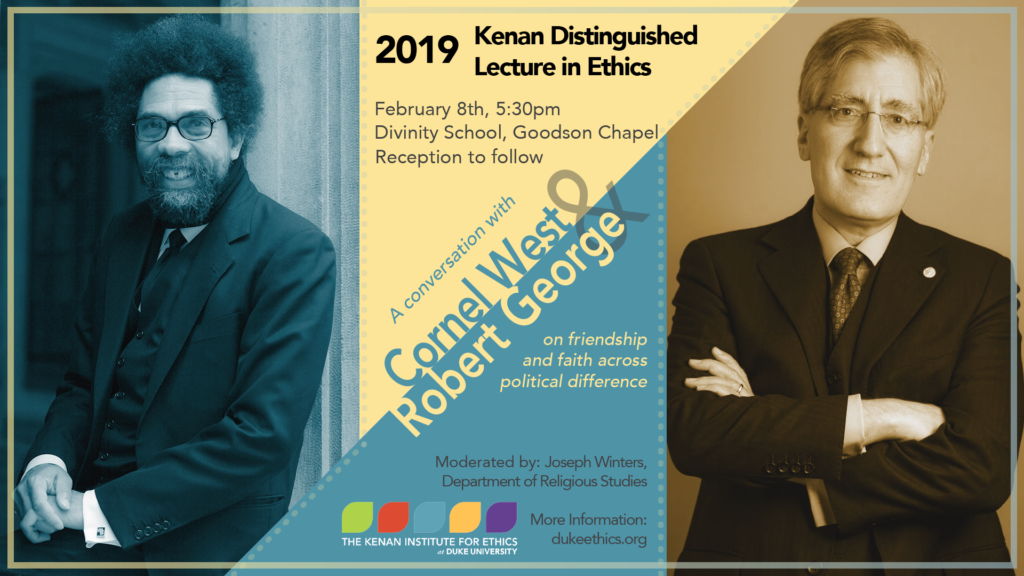
Our relationships at work are harmed when we disagree with others and experience their convictions as an assault on what we believe is right and true.
Without basic trust—along with at least some beliefs and convictions that we hold in common—it becomes almost impossible to move forward with our co-workers productively, but:
– How can I be confident in somebody’s judgments at work when their judgments in politics are so offensive?
– How could I ever collaborate with, even be friends with, somebody I disagree with so fundamentally?
– If, as has been repeatedly demonstrated, the most productive meetings and collaborations are comprised of people with divergent opinions who are both willing and able to declare them, then how can the right people ever come together and accomplish anything worthwhile when (deep down) they distrust and often loathe what those who disagree with them stand for?
– What must members of a group share with one another in order to disagree deeply yet not fall into disarray while doing so?
– How can those who fall on different sides of the most divisive issues still be friends, collaborators, co-workers, or citizens who remain able to fight for the same future together?
– How small can their common ground be and still be enough?
These are the questions that two prominent teachers, who happen to stand on opposite ends of the political divide, have been asking when they come together.

And it wasn’t just this joint appearance. Cornel West and Robert George have been on a road show talking about their friendship, their profound differences, and their common ground for several years now.
I overheard one of their conversations for the first time in a Wall Street Journal op-ed last year. In it, they made a radical suggestion. In order to gain an ethical perspective on any issue, try to imagine (and then follow through on) whatever Martin Luther King would have done under the same circumstances. I was moved enough by it that it became the subject of a newsletter I called “Trying on a Hero’s Perspective.”
Well they were at it again at Duke a couple of Fridays ago, and a video of their hour-long talk (with another half-hour of follow-up questions) came on-line last week. If you’re interested in spending a fascinating hour, you can safely start the recording at the half hour-mark following their voluminous greetings—but make sure and stay tuned through the questions at the end.
I hope the following summary of their remarks peaks your interest in listening to what West and George actually said that night as they gestured towards the “thin” foundation of commonality we all share and need to preserve; the kind of person you’ll need to be in order to champion it; and some additional ways that you can go about doing so.
1. A Thin Foundation of Commonality
At the beginning of their conversation, George wonders:
How thin a basic set of shared values can you have and still share enough to have a relationship where you can disagree and still have a friendship?
Of course, his first answer was reflected in his longstanding friendship with Cornel West.
George then reminds us that America never became a nation because we had the same ethnicity or religion but because we shared “a political set of values,” as both Abraham Lincoln and Martin Luther King reminded us during two of the most divisive periods in our history. George believes that we do share enough “to flourish in our pluralism,” but that there are serious dangers too, and we are seeing many of the warning signs today. We always “wrap emotions around our convictions to get things done”—and wouldn’t accomplish anything if we didn’t—but when those emotions are “wrapped too tightly” we become dogmatic, identifying too closely with our beliefs. We experience any challenge to our convictions “as a personal assault” which separates us from one another while creating hostility. Because of these tendencies, every pluralistic society rests on very thin ice.
It is not just America. George talks about the Hutus and Tutsis living together peacefully in Rwanda for many years until leaders enflamed local rivalries and friendly co-existence devolved into mass murder. George has a Syrian parent and visited his family’s home village in Syria a decade ago when Christians and Muslims were living and working together peacefully until it too turned into “a genocidal nightmare.” He reminds us that in democracies in particular, “civic friendship is very fragile,” and that whenever that friendship is lost, democracy tends to be replaced by tyranny.
Cornel West picked up the theme by rejecting both Plato’s and Dostoevsky’s views on society in favor of a vision that was championed by America’s Founding Fathers. Plato argued that the public was too emotional and ignorant to sustain a more inclusive form of governance, while Dostoevsky was convinced that most individuals don’t want to be free, preferring “pied pipers” to lead them and “magic” to amuse them. Instead, America’s founders believed that citizens could rise to the occasion and govern themselves because of basic principles they shared, memorializing this common ground in the Declaration of Independence, the Constitution and the Bill of Rights. But Benjamin Franklin and Thomas Paine also knew that “If you don’t renew the democratic possibilities, you are going to lose them.”
In their conversation at Duke, neither George nor West describe the foundation that needs continuous renewal beyond their reference to America’s founding, but they do address key aspects of it elsewhere. “Truth Seeking, Democracy, and Freedom of Thought and Expression-A Statement by Robert P. George and Cornel West” is a statement of principles which they published (and asked other concerned Americans to sign onto) in March of 2017. It is a key part of their joint effort to renew our democratic possibilities so that there continues to be “enough” of a foundation to support our civic friendship. This is a link if you wish to add your signature to it. (Please drop me a line if you do!) And here is their statement in full:
The pursuit of knowledge and the maintenance of a free and democratic society require the cultivation and practice of the virtues of intellectual humility, openness of mind, and, above all, love of truth. These virtues will manifest themselves and be strengthened by one’s willingness to listen attentively and respectfully to intelligent people who challenge one’s beliefs and who represent causes one disagrees with and points of view one does not share.
That’s why all of us should seek respectfully to engage with people who challenge our views. And we should oppose efforts to silence those with whom we disagree—“especially on college and university campuses. As John Stuart Mill taught, a recognition of the possibility that we may be in error is a good reason to listen to and honestly consider—and not merely to tolerate grudgingly—points of view that we do not share, and even perspectives that we find shocking or scandalous. What’s more, as Mill noted, even if one happens to be right about this or that disputed matter, seriously and respectfully engaging people who disagree will deepen one’s understanding of the truth and sharpen one’s ability to defend it.
None of us is infallible. Whether you are a person of the left, the right, or the center, there are reasonable people of goodwill who do not share your fundamental convictions. This does not mean that all opinions are equally valid or that all speakers are equally worth listening to. It certainly does not mean that there is no truth to be discovered. Nor does it mean that you are necessarily wrong. But they are not necessarily wrong either. So someone who has not fallen into the idolatry of worshiping his or her own opinions and loving them above truth itself will want to listen to people who see things differently in order to learn what considerations—evidence, reasons, arguments—led them to a place different from where one happens, at least for now, to find oneself.
All of us should be willing—even eager—to engage with anyone who is prepared to do business in the currency of truth-seeking discourse by offering reasons, marshaling evidence, and making arguments. The more important the subject under discussion, the more willing we should be to listen and engage—especially if the person with whom we are in conversation will challenge our deeply held—even our most cherished and identity-forming—beliefs.
It is all-too-common these days for people to try to immunize from criticism opinions that happen to be dominant in their particular communities. Sometimes this is done by questioning the motives and thus stigmatizing those who dissent from prevailing opinions; or by disrupting their presentations; or by demanding that they be excluded from campus or, if they have already been invited, disinvited. Sometimes students and faculty members turn their backs on speakers whose opinions they don’t like or simply walk out and refuse to listen to those whose convictions offend their values. Of course, the right to peacefully protest, including on campuses, is sacrosanct. But before exercising that right, each of us should ask: Might it not be better to listen respectfully and try to learn from a speaker with whom I disagree? Might it better serve the cause of truth-seeking to engage the speaker in frank civil discussion?
Our willingness to listen to and respectfully engage those with whom we disagree (especially about matters of profound importance) contributes vitally to the maintenance of a milieu in which people feel free to speak their minds, consider unpopular positions, and explore lines of argument that may undercut established ways of thinking. Such an ethos protects us against dogmatism and groupthink, both of which are toxic to the health of academic communities and to the functioning of democracies.
Once again, by regularly appearing together George and West are actually demonstrating the same civic friendship that they are championing in this statement.
2. The qualities we’ ll all need more of to help renew our democratic possibilities
Several of these qualities can be inferred from the statement above (such as intellectual modesty), but at Duke, George and West made several additional observations, particularly in the Q&A.
George begins with the importance of cultivating friendships with those who have different perspectives. But he also reminds us that when you do, you are leaving the conformity of those who are “most like you,” meaning that you will also need the courage of your free will to speak the truth as you see it. When you leave the comfort of your fellow travelers, it helps to have role models, including those whose courage has carried them to the point of martyrdom. He also acknowledges that you’ll need “a few others to hold you up” when you champion what you believe and encounter the hostility that is the most likely response.
For his part, West characterizes those with the necessary courage as being “more revolutionary,” noting that you must be “willing to bear your cross” which “signifies your quest to unarm truth and unapologetically love” those who vehemently disagree with you. He continues: “to be a polished professional usually means don’t get too close to that cross” because what is most important to you is wanting to conform to those who are most like you. But when you are willing to bear that cross and become a revolutionary, you need to know that you are also on your way to character assassination or (like Lincoln and King) literal assassination.
Embodying the courage, loneliness and pain that George and West were describing, one of the night’s three questioners was a Christian Palestinian woman from Israel whose involvement in the peace movement there has been regularly vilified by Christians, Muslims, Jews, Israelis and Palestinians. While George and West were embodying civic friendship, she embodied the pain that goes into finding it.

3. How to find a patch of green where civic friendship can grow
George and West give several examples, including these:
– When pursuing civic friendship with those who vehemently disagree with you, it is essential to decide which truths are negotiable for you and which are non-negotiable. For the Palestinian-Israeli peace activist, one non-negotiable truth is that every Palestinian baby deserves to live. When the ice is this thin, nothing is too basic to be left unsaid.
– Within Christianity, it is possible to harbor an intense hatred for a person’s sin while, at the same time, recognizing that his or her sins do not exhaust that sinner’s humanity. To similar effect, however odious a person’s convictions, they never rob that person of his or her essential dignity and integrity. Hate the sin but not the sinner. As West observed: we “must recognize the limitations but always hold out the possibility of transcending them” in the course of our civic conversations.
– To follow those possibilities even further, a person’s conviction always “lives” within a broader context or set of circumstances and is rarely either good or bad in spite of those circumstances. When you take the time to understand the context where another’s convictions arise, it is often possible to recognize how differences between you arose, agree to disagree, and step down from your mutual hostility. West illustrates this point by reference to our current divisions over “black face,” recalling that its original context suggests a kind of appropriation of black power by white slaveholders who wanted to have some of that power for themselves. In other words, “black face” was about attraction and not merely ridicule and oppression. Where there might be some “overlap” between positions within a particular context—that is, a more hopeful ground between those who are for and against a particular issue—there exists the possibility for civic conversation and even friendship.
I think you’ll enjoy the Robert George-Cornel West conversation at Duke when you get to hear it. I’d also recommend that you follow their road show as it winds its way across an America that is likely to grow even more divided as another presidential election approaches.
The unfortunate truth is that our divisions are never confined to the realm of politics. As hostility intensifies, it infects our work and leaches into our home lives.
The best way to champion common ground is by acting with the courageous belief that common ground is possible, that democracy is worth renewing, and that its renewal won’t begin with somebody else.
This post is adapted from my February 17, 2019 newsletter.


